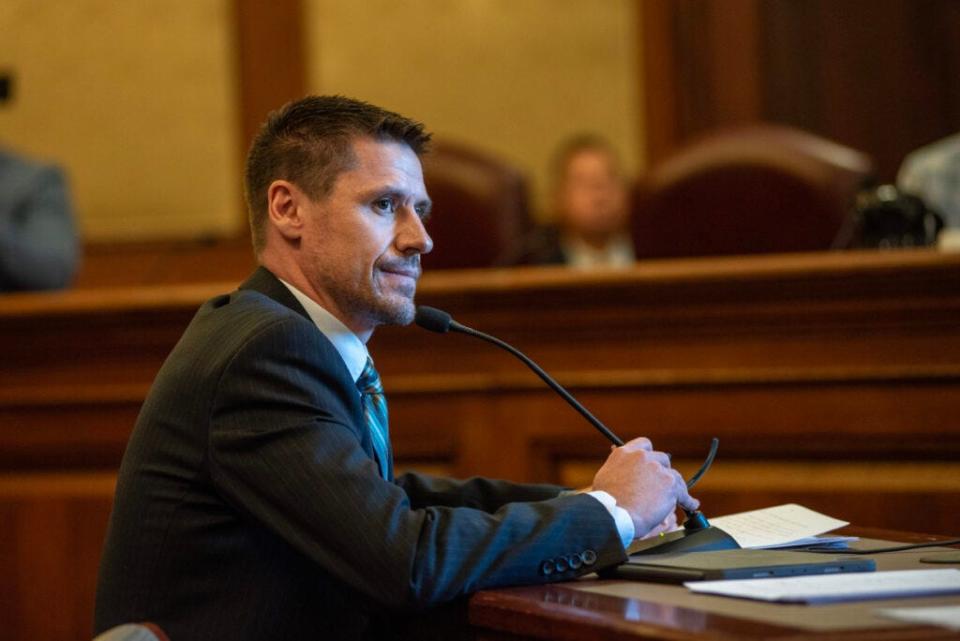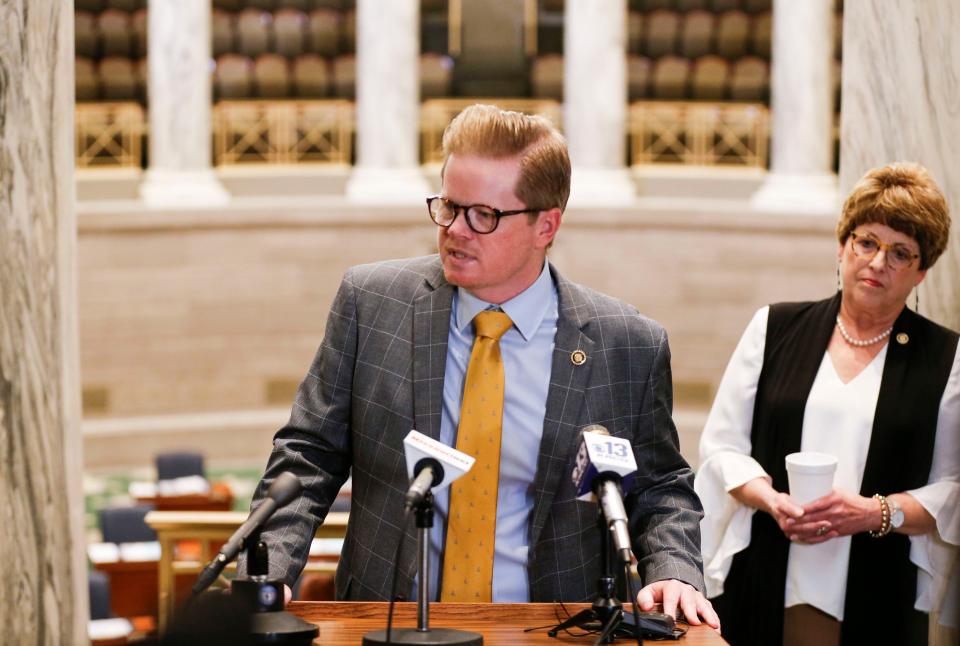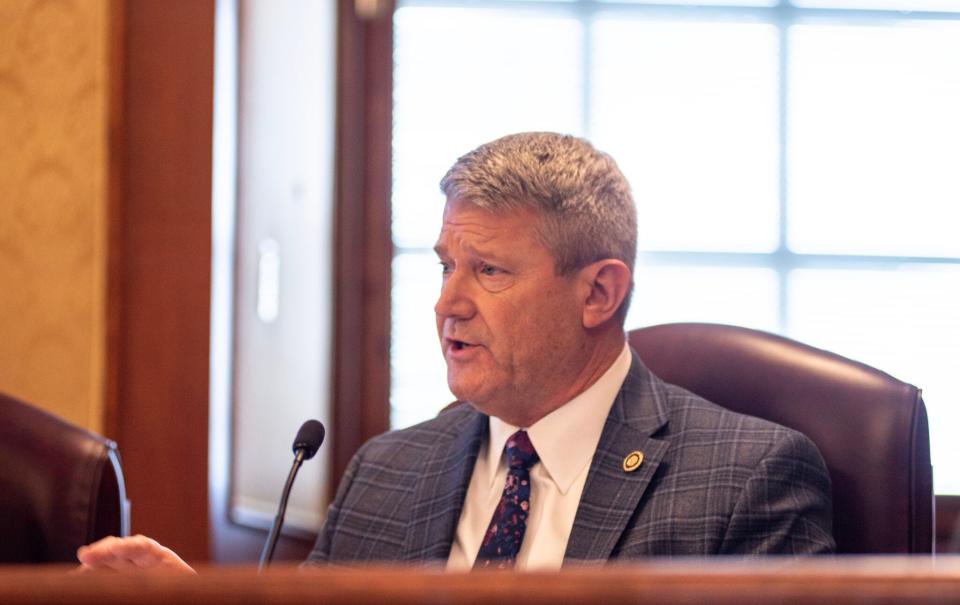State Senators approved an omnibus education package with expanded school choice program
The Missouri Senate passed an omnibus education bill on Thursday, which would allow for MOScholars, the state’s tax credit scholarship program for K-12 students, to expand statewide.
Currently, the Empowerment Scholarship Accounts Program is only available in charter counties and Missouri cities with a minimum of 30,000 residents. The bill’s sponsor, state Sen. Andrew Koenig, said the expansion will benefit parents and children who are looking for more choices in education.

“It's a great package for parents. It's a great package for kids,” Koenig said. “Obviously, the most important part to me is a statewide ESA program, and raising that threshold for the middle class so that way middle class families will have access to the school choice program.”
Under the current program, families who have an income that is 200% of the amount used to qualify for the free and reduced school lunch program can qualify for the program. This legislation would increase that to 300%, meaning that a family of four would face an income cap of $166,500 based on current reduced lunch eligibility standards.
The current MoScholars program is capped at $50 million in tax credits, but this legislation wants to raise that to $75 million, including a provision to tie the funding to the “percent increase or decrease in the amount of state aid distributed to school districts.”
Under the current model, the MOScholars program gives students more than $6,000 for tuition and other related educational expenses. The program is funded by donations made to Educational Assistance Organizations. These groups give scholarships to students, and the donors are allowed to claim a tax credit on their donations.
The Missouri Treasurer’s office acts as the steward of this program, which last year raised nearly $17 million for the program that has a cap of $50 million. Koenig, who is term limited in the state Senate, is running for treasurer this year. In a press conference Thursday, he implied that the current Treasurer Vivek Malek wasn’t doing enough to promote the program.
“I would expect that if we had a state treasurer who was promoting the program and helping raise money for it, I would expect that it would grow quicker,” Koenig said.
Other provisions included in the legislation
Additionally, this bill would allow Boone County to establish charter schools, which would be independent of local school districts. Initially, the bill would have allowed charter schools in all of St. Louis and St. Charles counties, but that language did not survive in the current form of the legislation.
Senate President Pro Tem Caleb Rowden, who represents Boone County, said that some members of the local community didn’t feel like they were “getting their money's worth” from the current publicly funded education system.
“I don't think that the implementation of a charter school or two or three in Columbia would in any way keep public education from continuing to flourish and grow and kind of regain the trust of the community,” Rowden said.

Rowden clarified that this wasn’t an attack on Columbia Public Schools, but rather an opportunity for parents to have increased options in their child’s education.
“I'm still as much of a supporter of CPS as I was the day I got here,” Rowden said. “I just think that a few more choices for parents in Columbia is not a bad idea.”
Senate Democrats had some issues with the bill when it was first debated, resulting in a filibuster earlier in the week. However, they allowed the bill to come to a vote on Tuesday after some concessions were made to find a compromise.
Among those were provisions that increased teacher pay from $25,000 to $40,000. This change would be included in state statute for the 2025-26 school year. Additionally, teachers who have master’s degrees and at least 10 years experience in the field would see a bigger salary increase, earning at least $46,000 in that school year and increasing to $48,000 by 2027-28.
Another provision championed by state Sen. Doug Beck would give additional funding to school districts that keep a five-day school week, as well as approve changes to a four-day school week through local elections.
“Included in this omnibus education bill is my legislation to encourage the return to the traditional five-day school week," Beck said. "Under this provision school districts and charter counties and cities of 30,000 (residents) must have a vote of the people to continue a four-day school week. This means districts like Independence would need to hold a vote of the people before 2026.”
Other changes to the legislation added more teacher recruitment and retention scholarships and adjusted the calculations for school aid such that the school’s attendance and enrollment would be factors in the funding formula.
More: Poll shows disapproval of Biden, national politics, but scattered support for state issues
Senate Democrats also wanted more transparency in how the program operates. Changes to the legislation would require the state treasurer to post certain information about the program online, including how much scholarship money is paid annually to schools and how many students have received scholarships.
“If you recall, there was an issue with Cairo’s charter school where they were giving back pay for the employees when they never even worked there, with taxpayer money,” Beck said. “We closed that loophole because it is actually unconstitutional to do that in public schools. We wanted to close that loophole for charter schools.”

Both Republican and Democratic Senators agree that the current fiscal note is incorrect in its estimate that it could cost the state $235 million when fully implemented. Rowden told reporters at a Thursday press conference that the legislation was more likely to cost “somewhere in the $450 million range.”
The bill now heads to the Missouri House, where the bill’s sponsor suspects that additional amendments may be tacked on.
“It's a big package. Who knows what's going to actually happen,” Koenig said. "Obviously, when we get back from spring break, we'll start working through that process to see what the needs of House members are.”
The Missouri General Assembly will not meet this week, as it is the legislative spring break. This marks the halfway point in the legislative session, with lawmakers set to reconvene on March 25 to continue their work.
This article originally appeared on Springfield News-Leader: Missouri Senate passes expanded school choice program
Solve the daily Crossword

